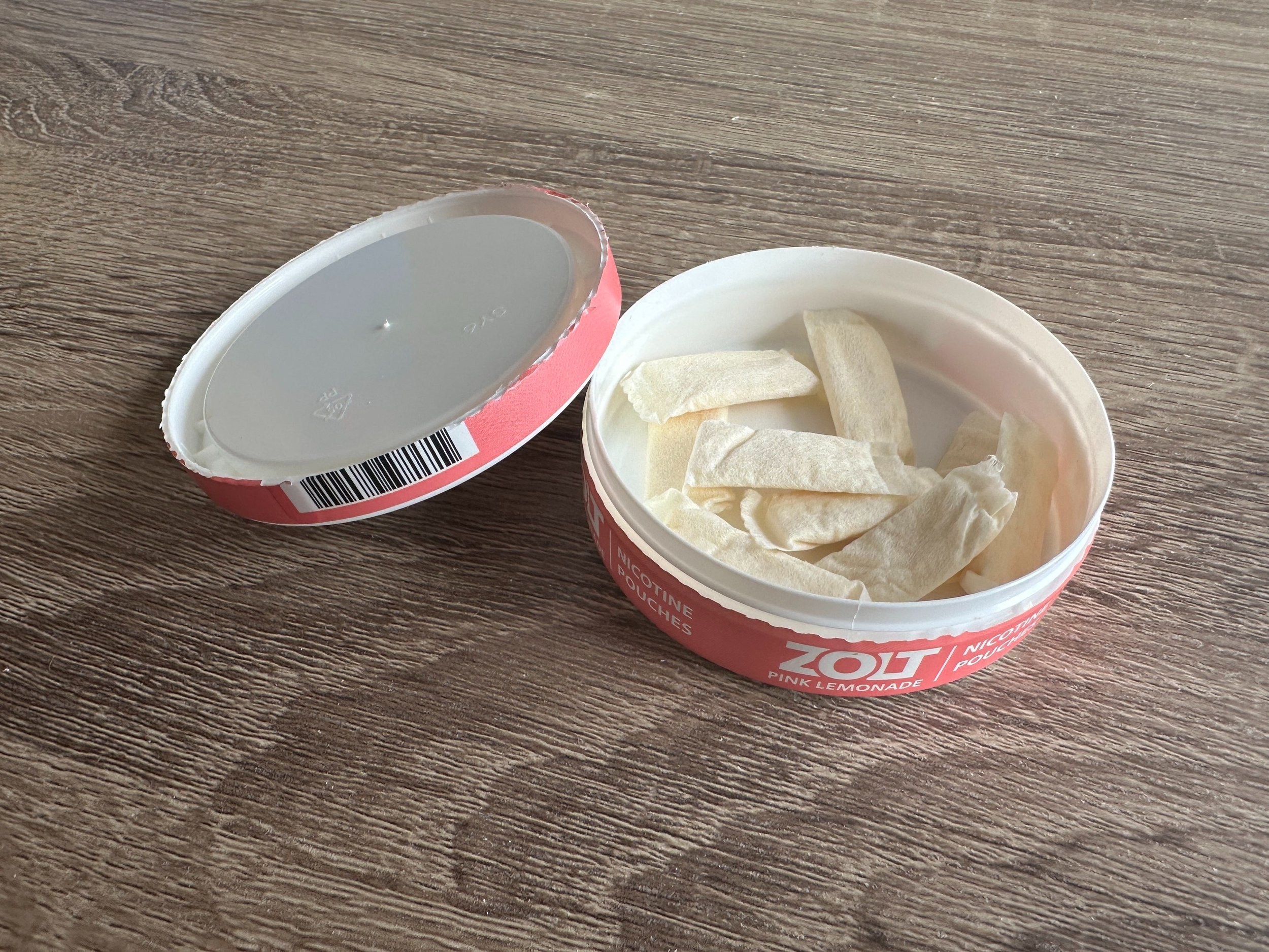Nicotine Pouches and Your Hormones: Are They Helping or Hurting Your Energy?
Nicotine pouches are everywhere. Marketed as a "cleaner" alternative to smoking or vaping.
Nicotine pouches are everywhere. Marketed as a "cleaner" alternative to smoking or vaping, they claim to give you a quick mental boost without the downsides of cigarettes. But if you’re serious about your energy, focus, and hormone health, there’s one big question:
Are nicotine pouches messing with your testosterone and overall hormone balance?
Let’s break down what nicotine really does to your body—and whether it’s helping or hurting your long-term health.
Nicotine and Testosterone: A Double-Edged Sword?
Nicotine is a stimulant. That means it can temporarily boost focus, alertness, and dopamine levels. This is why so many men use it as a mental pick-me-up.
But here’s where things get tricky: Nicotine’s effects on testosterone and other hormones are mixed.
The Short-Term Boost
Some research suggests that nicotine may slightly increase testosterone levels in the short term by stimulating the release of dopamine, which plays a role in hormone regulation.
In small doses, nicotine also activates the adrenal glands, which release epinephrine (adrenaline)—giving you a temporary energy surge.
But before you reach for that next pouch, here’s the problem...
The Long-Term Crash
While nicotine might give you a quick dopamine hit and a short-lived testosterone bump, chronic use can:
Increase cortisol (the stress hormone), which suppresses testosterone.
Disrupt dopamine regulation, leading to dependency.
Affect blood flow, which can impact everything from recovery to libido.
Over time, this can leave you feeling drained, dependent, and hormonally out of sync.
How Nicotine Pouches Impact Cortisol & Energy Levels
Cortisol is your body’s stress hormone—and nicotine has a big impact on it.
Nicotine triggers cortisol release, which is why some people feel alert after using it.
Chronically high cortisol levels lower testosterone, wreck sleep, and make you more prone to fatigue.
When cortisol spikes too often, it can lead to burnout, leaving you more tired than before.
In other words, nicotine pouches might feel like an energy hack in the moment but could be setting you up for long-term energy crashes.
Does Nicotine Affect Sleep and Recovery?
Testosterone is produced while you sleep. If anything disrupts your sleep, your hormones take a hit.
Nicotine is a stimulant—meaning it can keep your body wired even when you think you’re relaxed. Many people who use nicotine regularly report:
Trouble falling asleep
Less deep sleep (where testosterone is made)
Waking up groggy despite getting enough hours in bed
If you’re struggling with low energy, sluggish recovery, or lack of motivation, nicotine could be making the problem worse.
Nicotine, Blood Flow, and Sexual Health
Here’s something most men don’t realize: Nicotine constricts blood vessels.
That means:
Less circulation to muscles → Slower recovery
Less blood flow to the brain → Brain fog
Less blood flow to… other areas → Weaker performance
Many men who use nicotine daily experience lower libido and weaker erections over time. That’s because healthy testosterone levels aren’t enough—you also need strong blood flow for peak performance.
Should You Quit Nicotine for Better Hormones?
If you’re using nicotine occasionally, you might not see much of an impact. But if you’re relying on nicotine pouches daily to stay sharp, there’s a good chance they’re:
Spiking your cortisol (which lowers testosterone).
Disrupting sleep (which kills energy and hormone production).
Messing with blood flow (which impacts muscle recovery and performance).
Most men don’t realize how much nicotine is affecting their energy until they quit. When they do, they often report:
More consistent energy levels
Better focus without the highs and crashes
Improved sleep and morning energy
Higher libido and stronger performance
How to Reduce Nicotine’s Impact on Your Hormones
If you’re not ready to quit completely but want to minimize damage, here’s how to protect your testosterone and energy:
Reduce Frequency – Use nicotine sparingly, rather than all day, every day.
Avoid Nicotine Late in the Day – Using it before bed will wreck your sleep.
Manage Cortisol Naturally – Get morning sunlight, limit caffeine, and avoid high-stress habits.
Cycle Off Periodically – Take breaks to let your body reset its natural hormone balance.
Support Testosterone – Strength training, high-protein meals, and key supplements (zinc, magnesium, vitamin D) can help counteract nicotine’s effects.
The Bottom Line: Is Nicotine Helping or Hurting You?
Nicotine pouches might seem like a low-risk energy boost, but over time, they can lower testosterone, increase stress hormones, and disrupt sleep.
If you’re struggling with low energy, motivation, or performance, it’s worth asking: Are nicotine pouches actually helping, or are they making things worse?
Your hormones control everything—your energy, drive, strength, and focus. Take care of them, and they’ll take care of you.

